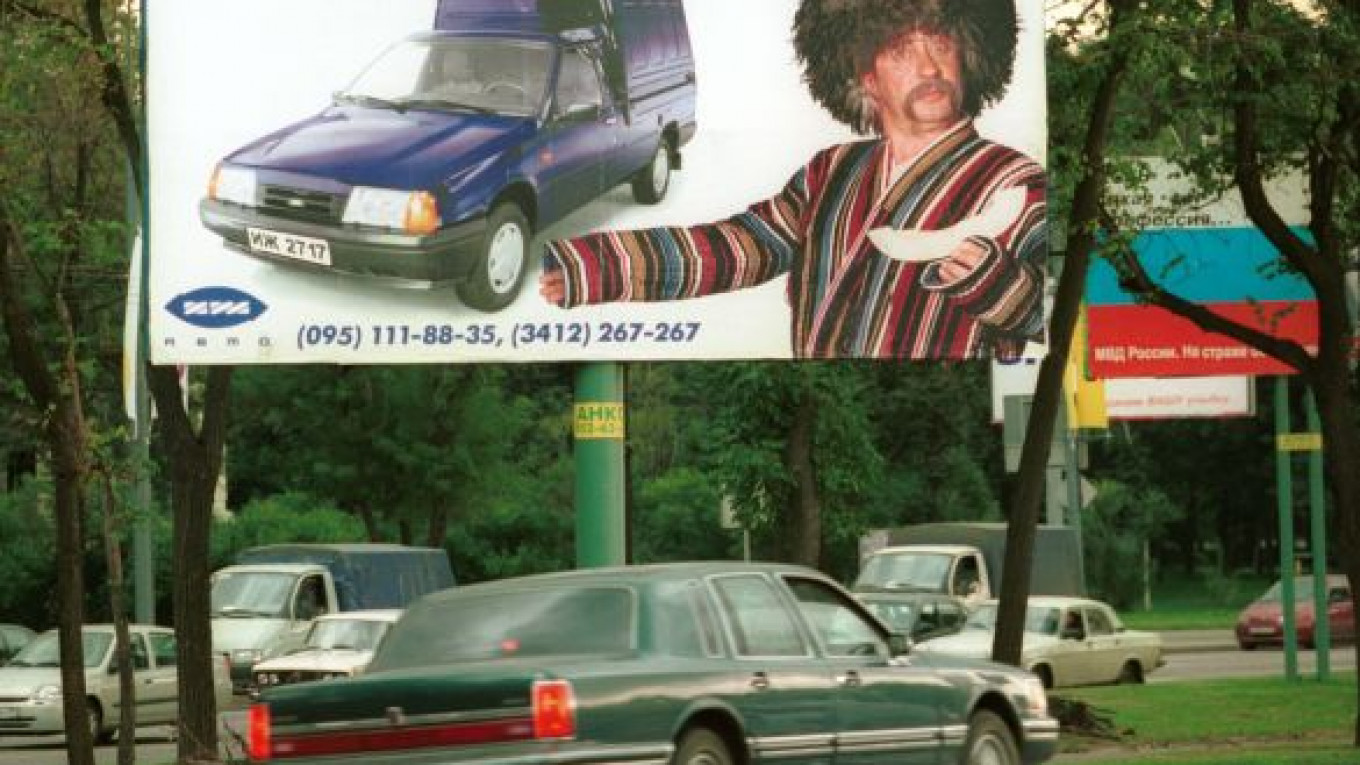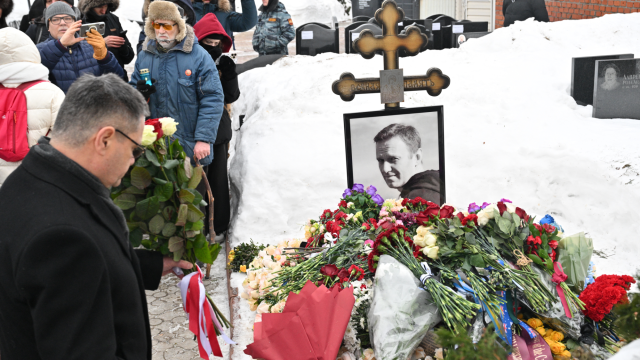The Interior Ministry's Investigative Committee is searching for the principal owner of Sok Group, Yury Kachmazov, and several executives from Sok and IzhAvto over the theft of 6.7 billion rubles ($230 million) in assets from the factory, which was bankrupted in September 2009.
Others sought include Sok president Andrei Frolov, first vice president Yury Amelin, former IzhAvto chief executive Mikhail Dobyndo and economy and finance director Yevgeny Strakhov, the committee said in a statement.
All of them, except Dobyndo, have fled the investigation and are wanted, the committee said. Dobyndo is cooperating with the investigation and has signed an agreement not to leave town, a committee employee said.
Allegedly in 2008-09, Kachmazov, Frolov, Amelin, Dobyndo and Strakhov misappropriated from IzhAvto liquid assets — money, automobiles, shares and stakes in other enterprises' charter capitals — amounting to more than 6.7 billion rubles, the committee said.
In 2008, Sok agreed to sell IzhAvto to AvtoVAZ — but the parties did not settle on a price. Finally, three stakes of 25 percent each were sold to IzhAvto's subsidiary Izh-komplekt and the companies Norex and Gross, whose founders — according to the SPARK database for the first quarter of 2009 — were IzhAvto's quality-control director Alexander Yevdokimov and IzhAvto's deputy chief engineer Vladimir Neprokin.
Now 99.9 percent of Norex and Gross belong to Cyprus-registered offshore firms. The deal came to about $200 million. Instead of money, the buyers paid with automobiles produced by the factory.
This is asset stripping — plain and simple, said lawyer Konstantin Trapaidze. It's evident in the transaction's structure: shares are sold to managers, but the factory pays. As a result, the factory's debt rises and its financial situation deteriorates, he said.
"Sok Group left IzhAvto for dead, robbing it of its assets. We, along with the Prosecutor General's Office, are now going to investigate this," Audit Chamber chairman Sergei Stepashin said in May 2009. But the Audit Chamber's inspection later that year did not reveal any wrongdoing at IzhAvto.
Both the Interior Ministry and the Prosecutor General's Office attempted to find signs of deliberate bankruptcy; criminal cases were opened and sent to the Interior Ministry's Investigative Committee.
Even Sberbank chief executive German Gref promised to hold the former IzhAvto owners criminally liable. Sberbank is IzhAvto's premier creditor, accounting for about 8 billion rubles of the firm's 15 billion ruble debt.
"We shall not forgive those who have committed fraudulent acts in this matter. We will do everything to bring them to justice. I think that from now on, it will be rather difficult for them to do business in this country," Gref said in an interview with Business FM in September last year.
Two sources close to AvtoVAZ shareholders told Vedomosti that Sok misappropriated a number of automobiles in a rather unusual way — by moving a fence so that a portion of finished products were no longer on IzhAvto's territory and thus could not be seized to pay off loans by Sberbank.
IzhAvto terminated operations in May 2009, after Kia Motors and AvtoVAZ — for which the plant assembled automobiles — cut off component supplies because the factory could not pay up. IzhAvto resumed operations only in fall 2010, this time under bankruptcy administration.
Dobyndo resigned from IzhAvto at the beginning of last year. Since that summer he has headed Unified Automobile Components, a Troika Dialog subsidiary that manages autoparts for Russian Technologies and AvtoVAZ. He declined to comment on Feb. 14. Strakhov, since late 2009, has not worked at the company, an IzhAvto spokesperson said.
Kachmazov and Frolov are now in the United Arab Emirates, said two sources close to Sok. Kachmazov left Russia in September 2010, one of them said. Sberbank and IzhAvto spokespeople did not respond to questions from Vedomosti.
An Udmurtia arbitration court Thursday declared carmaker IzhAvto bankrupt and appointed a receiver for a period of six months. Creditors of IzhAvto voted on Jan. 17 in favor of putting the car plant in receivership and selling off its assets. The plant has 13.5 billion rubles of debt.
Sberbank, the company's biggest creditor, aims to sell United Automobile Group, its subsidiary currently running IzhAvto, to AvtoVAZ in March, paving the way for AvtoVAZ and Renault-Nissan to modernize the plant.
IzhAvto could produce 126,000 cars in 2011, and 300,000 by 2014 — half of them Renault and Nissan models. AvtoVAZ, which will transfer production of the Lada Samara to IzhAvto, could invest 7 billion rubles in the plant in three or four years, funded by a Sberbank loan to that amount repayable in up to seven years.
(Interfax)
A Message from The Moscow Times:
Dear readers,
We are facing unprecedented challenges. Russia's Prosecutor General's Office has designated The Moscow Times as an "undesirable" organization, criminalizing our work and putting our staff at risk of prosecution. This follows our earlier unjust labeling as a "foreign agent."
These actions are direct attempts to silence independent journalism in Russia. The authorities claim our work "discredits the decisions of the Russian leadership." We see things differently: we strive to provide accurate, unbiased reporting on Russia.
We, the journalists of The Moscow Times, refuse to be silenced. But to continue our work, we need your help.
Your support, no matter how small, makes a world of difference. If you can, please support us monthly starting from just $2. It's quick to set up, and every contribution makes a significant impact.
By supporting The Moscow Times, you're defending open, independent journalism in the face of repression. Thank you for standing with us.
Remind me later.






